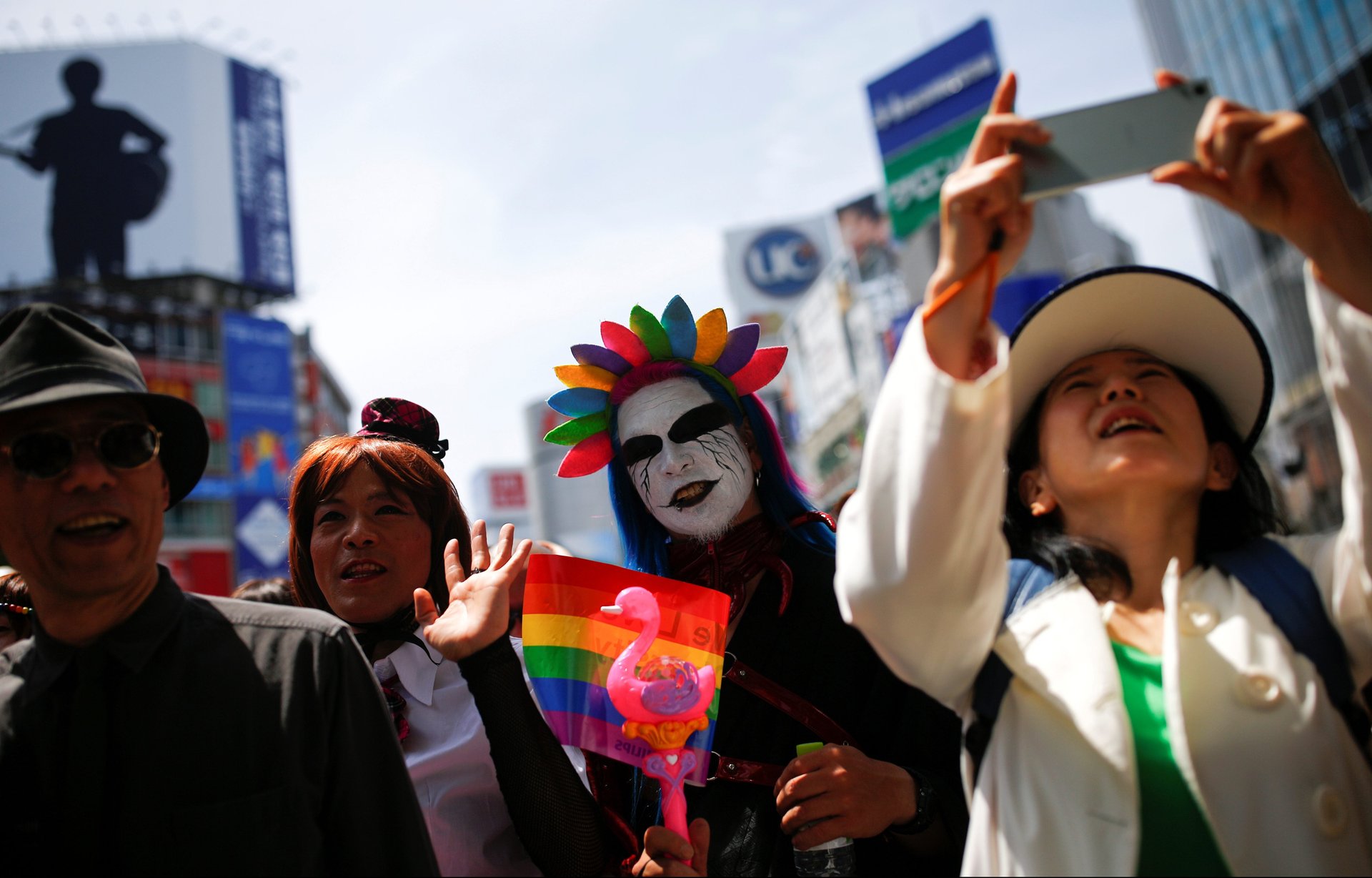For the first time, same-sex couples will be recognized by a Japanese prefecture
Although the countrywide legalization of same-sex marriage remains a far-off reality in Japan, local governments are taking the lead in working toward greater equality for LGBT people, despite the lack of action at the national level.


Although the countrywide legalization of same-sex marriage remains a far-off reality in Japan, local governments are taking the lead in working toward greater equality for LGBT people, despite the lack of action at the national level.
Today marked a new milestone in the progress of LGBT rights in Japan, as Ibaraki prefecture said that next month it will start issuing partnership certificates for gay and transgender couples, the first prefectural-level government in Japan to do so. It follows similar moves by 22 other municipal governments, beginning with the wards of Shibuya and Setagaya in Tokyo in 2015. So far this year, 13 local governments have adopted the policy, including most recently Kanuma city in Tochigi prefecture and Miyazaki city. Others will officially implement the policy in the coming weeks, including the city of Kitakyushu in Fukuoka prefecture.
Ibaraki was also the second prefecture after Tokyo to pass an ordinance that bans discrimination against sexual minorities earlier this year (link in Japanese).
A same-sex partnership does not give couples the same rights as married couples, but it does allow for partners to make medical decisions for a significant other and live together in public housing.
Aya Kamikawa, a transgender assembly member for Tokyo’s Setagaya ward, tweeted that the move by Ibaraki was significant based on population size. Until now, the biggest area by population to issue same-sex partnership certificates was Osaka city, which has 2.7 million inhabitants; Ibaraki has almost 3 million, she said.
The legalization of same-sex marriage at the national level is still a distant reality in Japan, as the Liberal Democratic Party, which advocates conservative family values, looks set to remain in power for years to come. Those values, however, have increasingly clashed with those of younger generations, who are overwhelmingly receptive of same-sex relationships. Tokyo hosting the Olympics in 2020 has also drawn global attention to Japan’s track record on LGBT rights, namely its position as the only G7 country that doesn’t have marriage equality.
“Hopefully this will move or at least induce the other prefectures to review the issue… particularly given that the national governmental initiatives are likely to take time, but also because the moves by the prefectures will surely impact on the pace of change at the national level,” said Naosuke Fujita, co-founder of Japanese advocacy group Lawyers for LGBT & Allies Network and general counsel at Goldman Sachs Japan.
In February, 13 same-sex couples filed the country’s first lawsuit challenging the ban on gay marriage, arguing that it is unconstitutional. Earlier this month, opposition parties submitted the country’s first ever same-sex-marriage bill, which is very unlikely to make headway in the legislature. Kanako Otsuji of the Constitutional Democratic Party, the first openly gay member of parliament, told Reuters that the government was “totally out of synch” with popular opinion on gay marriage. At a local level, sexual minorities are becoming more visible: in April, the first transgender person was elected to a prefectural assembly, in Hokkaido.
Another major battle in the fight for LGBT equality in Japan is over the law regarding transgender people. In January, the supreme court upheld a requirement that transgender people must be sterilized if they want to have their gender changed on official documents, rejecting an appeal by a transgender man who said such a law was unconstitutional. Groups such as Human Rights Watch have called the law an affront to international medical standards and treats transgender people as mentally ill.
Update: This story was updated to include comment from Lawyers for LGBT & Allies Network.